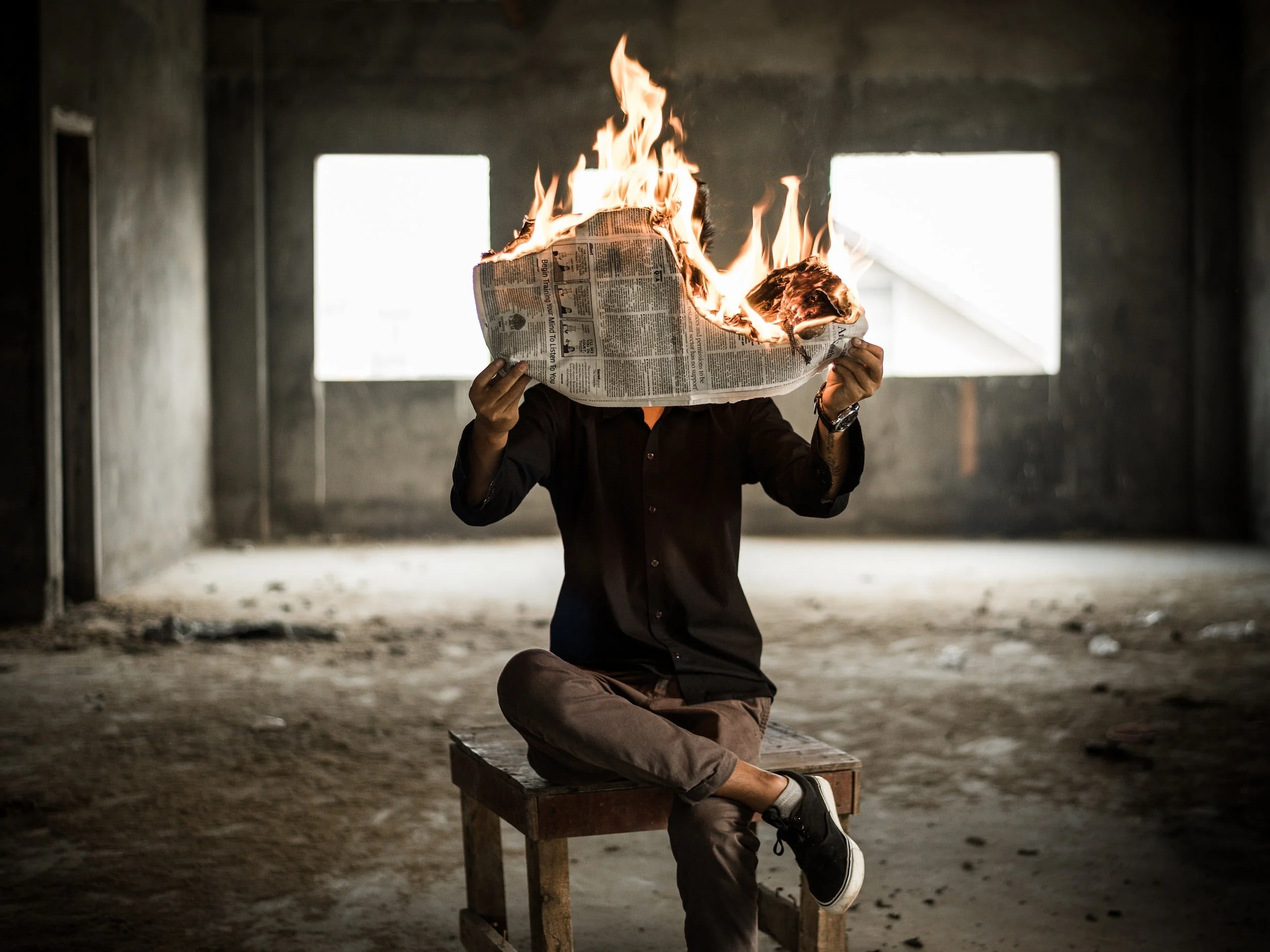Is this really news?
/So last Thursday at around 2pm, I received an email out of the blue from a journalist at Stuff.
It included the following questions and a response deadline of 5pm the same day - three hours later:
Are you working for [private media company] in any capacity? If so, what is that work?
How long have you been working for [private media company]?
Who hired you?
Are you involved in training any [private media company] staff in any way - if so, what’s that training about?
What makes you suitable for training journalists?
Did [private media company] have any concerns about hiring you, including in relation to numerous allegations about inappropriate workplace conduct, including at TVNZ and Al Jazeera?
Have any [private media company] staff expressed concerns about your hiring?
And then later that evening, a follow-up asking for my response to a series of revised questions, with a new deadline of 5pm Friday. These included:
Your meeting with [personal friend] at the [private media company] office in Auckland on January 24, what was that about?
Who initiated that meeting between you two?
There are a number of very high-profile allegations about your workplace behaviour. You have also apologised for what you describe as “flirtatious, over-friendly” behaviour at work. So why did you consider it appropriate to hold a meeting at the [private media company] office in front of members of their editorial team?
Was employment, contracting or any other work for [private media company], paid or otherwise, discussed between you and [personal friend]?
Why were you introduced to members of [private media company] editorial team after that meeting?
Are you still, or have you ever been, in discussion with [personal friend] over employment at [private media company]?
If not, what was your meeting with [personal friend] at [private media company] about on January 24?
And then again, on Monday morning, a further email asking:
I’m following up on these questions from last week.
Do you intend to respond?
No, I didn’t respond.
Why should I?
What is there to respond to?
I do not work for [private media company] in any capacity, and I never have.
I am a private citizen, who met up with a personal friend at their place of work.
And yet an experienced journalist - at a time of national emergency and crisis immediately following Cyclone Gabrielle - felt it was important to inform the nation that I went into an office three weeks prior to meet someone who I knew.
So, as an experienced journalist myself, here are my own (very much rhetorical) questions:
How is the content of a private meeting between two individuals subject to a journalist’s scrutiny (and, from the tone of some of the questions, their judgement)?
Are my future employment prospects now a matter for the media to weigh in on?
IF a private firm wanted to hire me - be it a media company or the local hardware store - is that always going to be a matter for the public to be informed of?
Is this really what’s now considered ‘a story’?
I know my employment at TVNZ was of public interest. It was high-profile and TVNZ is a state-owned entity which makes it something the New Zealand taxpayer has a stake in.
And I know the allegations of my workplace behaviour in the past will inevitably give people pause. For any behaviour that may have made anyone feel uncomfortable, I have apologised and will reiterate it again now. I am sorry.
I would remind people however that those allegations remain, in most part, anonymous hearsay. Some lack context, some are lies, and I will speak to them when I am able.
The Stuff journalist informed me that I apparently made people feel uncomfortable just with my presence at [private media company]. Again, I am sorry people felt that way - though it’s not surprising based on what’s been reported so far. When people eventually have the full story, I hope they will reconsider their previous views.
The facts right now however (in relation to this ‘story’) are simple.
If I was going - or indeed do go - for a job interview, then that’s between me and the prospective employer.
And if I go into an office - or indeed anywhere - to meet someone who I already know, then that’s definitely not the media’s business.
But I WILL answer one question which was posed to me: “What makes you suitable for training journalists?”
24 years of broadcast journalism experience, reporting or anchoring from 23 cities in 14 countries;
16 years as a frontline presenter for one of the world’s biggest international news channels;
4 U.S. presidential elections, broadcasting for 12+ hours at a time, plus anchoring a live presidential inauguration from Washington DC;
3 weeks covering a controversial and tense Zimbabwean election from Harare - the only international broadcaster to do so;
2 panel discussions and multiple interviews with presidents, prime ministers, and political leaders at the World Economic Forum in Davos;
One-on-one interviews with two former British prime ministers;
Hundreds of hours of live unscripted broadcasting of revolutions, shootings, celebrations, coups, natural disasters, anniversaries, and pandemics;
Thousands of hours preparing for interviews, discussion shows, economics programmes, and creating carefully-crafted broadcast television;
An Emmy nomination for a news bulletin which I presented, on a programme which I part-created;
Suffice to say, if anyone IS interested in utilising all that experience, do get in touch.


